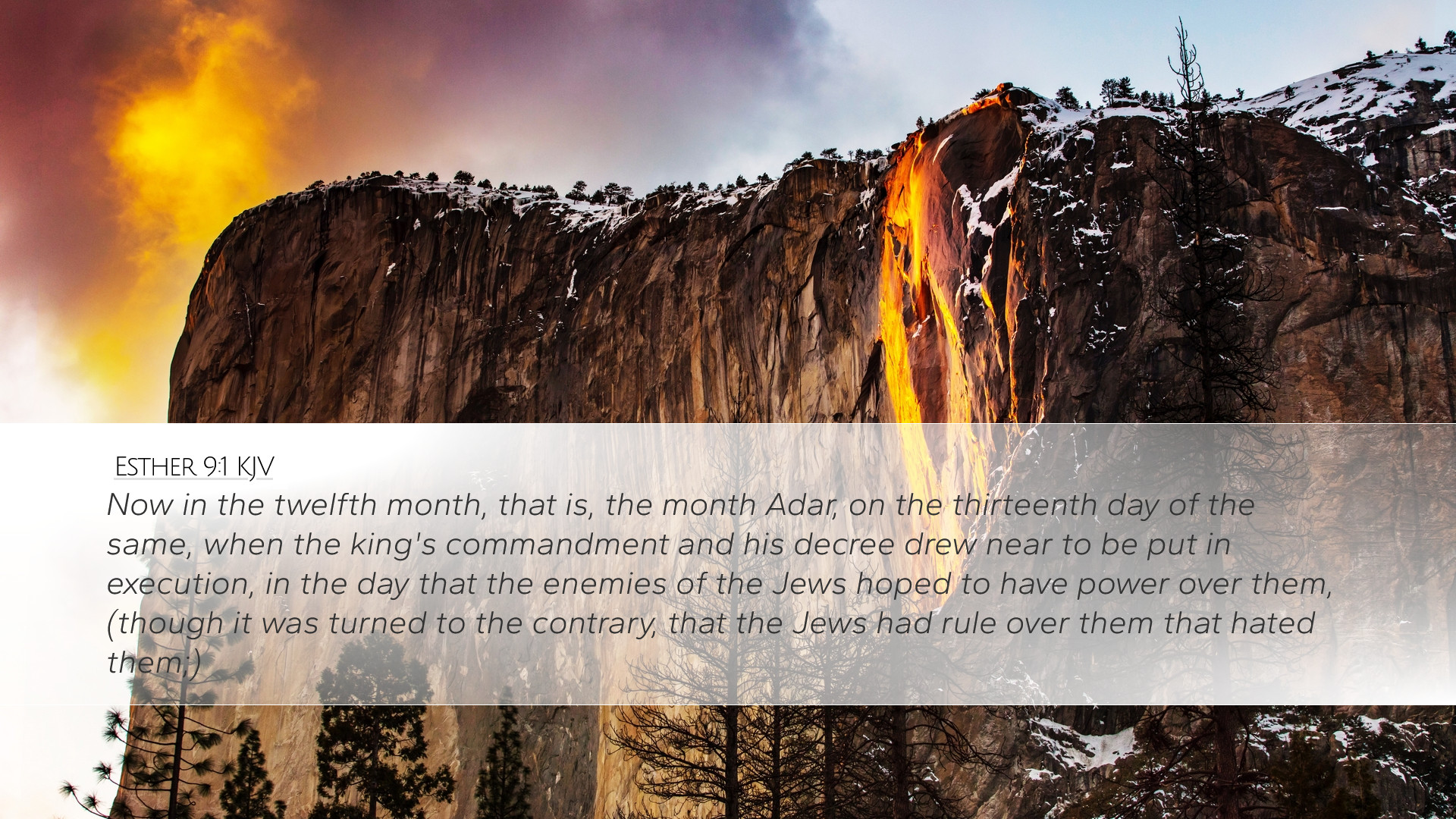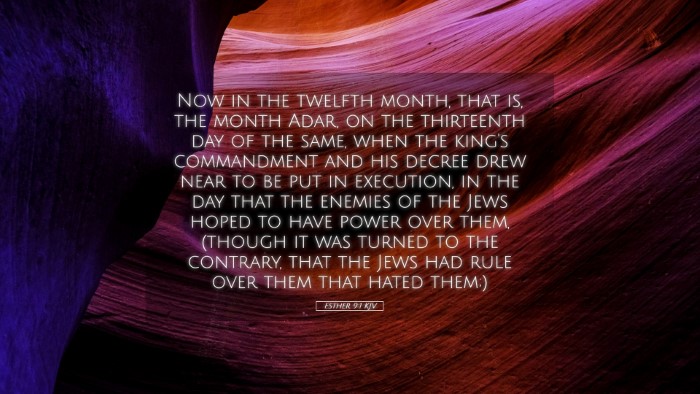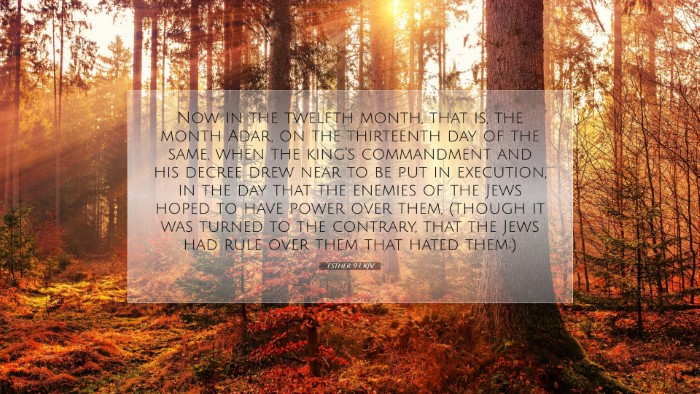Commentary on Esther 9:1
Verse Reference: Esther 9:1 - "Now in the twelfth month, that is the month of Adar, on the thirteenth day of the same, when the king's command and edict were about to be carried out, on the very day when the enemies of the Jews hoped to gain the mastery over them, the reverse occurred, the Jews gained mastery over those who hated them."
Introduction
The narrative of Esther reaches a watershed moment in chapter 9, where the culmination of divine providence and human action intersect. This verse, rich in theological significance, explores themes of deliverance, justice, and reversal of fortune. In this commentary, insights from esteemed public domain commentaries will be interwoven to bring out the depth of meaning understood in this pivotal verse.
The Historical Context
The events of Esther 9:1 occur in the twelfth month of the Jewish calendar, a period marked by impending doom as plotted by Haman against the Jews. This historical backdrop is crucial in understanding the gravity of the verse. Albert Barnes remarks that the edict of King Xerxes, influenced by Haman's malice, was a decree that sought to annihilate the Jewish people. The timing of this decree, coinciding with the celebration of the Passover, cannot be missed, as it highlights the contrasting themes of death and deliverance.
Oppression and Reversal
Esther 9:1 vividly depicts the moment when the Jews, faced with annihilation, are instead lifted to victory over their adversaries. Matthew Henry emphasizes the concept of divine intervention; the day which was meant for their destruction became the day of their triumph. This serves as a theological assertion that God, although seemingly absent at times, remains sovereign and faithful to His covenant people.
Theological Implications
Notably, the verse embodies the doctrine of divine reversals - where despair is met with hope and defeat with victory. Adam Clarke notes the irony of the enemies’ expectation as it underscores the unpredictability of God's deliverance strategies. Such reversals are fundamental within the biblical narrative, echoing other scriptural accounts (such as the Israelites' deliverance from Egypt) where God turns the tables on those who conspire against His people.
Analyzing Key Themes
- Timing of Deliverance: The specific mention of the thirteenth day shows that deliverance sometimes comes at the last moment. Clark remarks on the patience and faith required from the Jews leading up to this critical moment.
- Divine Sovereignty: This verse asserts that God is in control, even when the circumstances suggest otherwise. He can turn the plans of the wicked upside down.
- Community and Unity: The Jews banded together at this time, illustrating the strength found in unity when facing common foes. This mirrors the body of Christ in their collective engagement against spiritual oppressors.
Practical Applications
For pastors and theologians, Esther 9:1 serves as a powerful reminder of God's ongoing work in the lives of His people. The verse prompts the following reflections:
- Assurance in Adversity: Believers are encouraged that even in the darkest times, God is at work behind the scenes, orchestrating our deliverance.
- The Importance of Persistence: Like the Jews, Christians are called to stand firm in the face of adversity and trust in God's timing.
- Hope in Divine Justice: The narrative reassures that God will set right all wrongs, providing not just hope but a promise that evil will not triumph.
Conclusion
Esther 9:1 is not merely a historical account but a profound theological statement about God’s providential care for His people. Pastors, students, and scholars are invited to witness how the events unfold into a divine tapestry of victory woven through the faith and courage of the Jewish people. The collective fight against their oppressors ultimately teaches that while oppression exists, so too does the promise and power of divine deliverance.
This rich narrative invites reflection on personal and corporate faith journeys, reminding believers to gather courage, unite, and trust in the God who reverses fortunes for the sake of His chosen ones.


